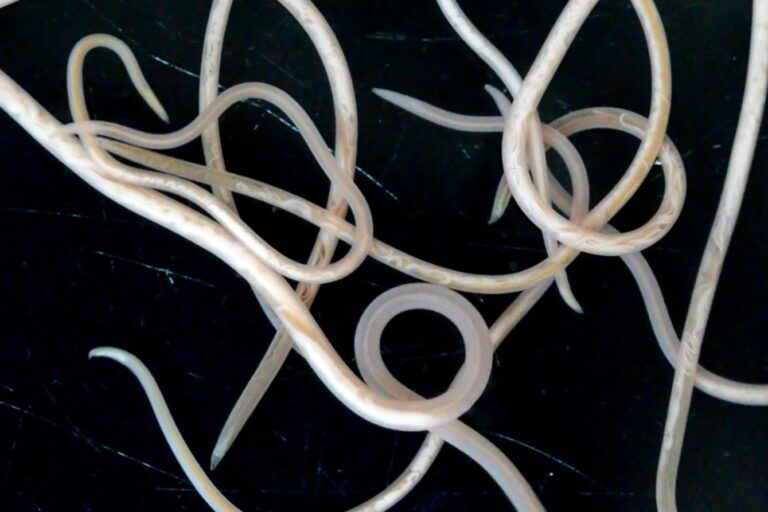Baylisascaris procyonis

Raccoon
Baylisascaris procyonis, commonly known as raccoon roundworm, is a species of nematode that primarily parasitizes the intestine of raccoons (Procyon lotor). Females can reach a body length of up to 20 cm, while males are slightly smaller, measuring up to 9 cm in length (Sprent 1968). Adult female raccoon roundworms can produce over 115,000 eggs daily, which are excreted in the host’s feces (Kazacos 1982). Under suitable environmental conditions of temperature and humidity, the eggs develop into infectious larvae within two to four weeks and can survive in the environment for several years. Small birds and mammals, particularly rodents, serve as intermediate hosts (Kazacos 2001).
Human pathogenicity: Humans can serve as accidental intermediate hosts in the parasite’s life cycle. Infection can lead to visceral, ocular, and neural larva migrans (Kazacos 2001).
-
Kazacos, KR (1982)Contaminative ability of Baylisascaris procyonis infected raccoons in an outbreak of cerebrospinal nematodiasis. In: Proceedings of the Helminthological Society of Washington, n° 49, p. 155–157.
-
William, M et al. (2001)Parasitic Diseases of Wild Mammals. Ames, Iowa, USA: Iowa State University Press, p. 301–341.
-
Sprent, JF (1968)Notes on Ascaris and Toxascaris, with a definition of Baylisascaris gen.nov. In: Parasitology, vol. 58, n° 1, p. 185–198.